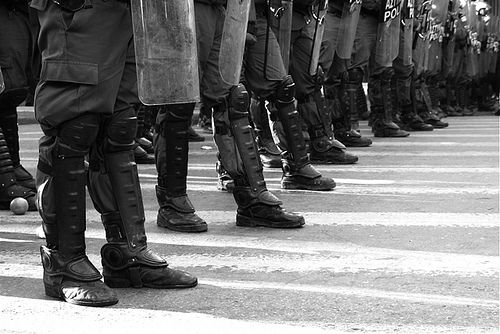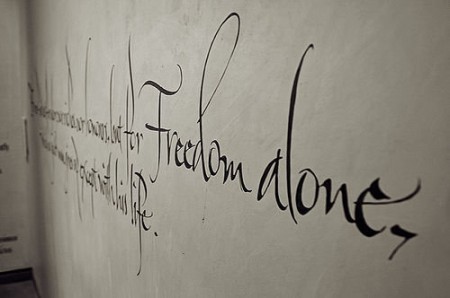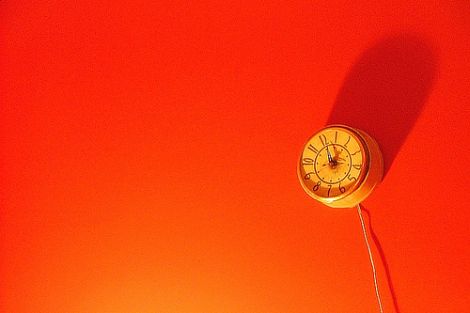
There is a quote, much celebrated by activists, cynics, and political science students the world over, that I think could use a second look:
“It is no measure of good health to be well-adjusted to a profoundly sick society.” ~Jiddu Krishnamurti
I like Krishnamurti, and I think he’s being misunderstood here, but I’ll get to that. Taken at face value, I disagree.
Activists, particularly those who nurture a general dislike for humankind at large, prize this snarky quote because it seems to validate the notion that only others need to change.
If our society is profoundly sick and we should refuse to adapt to it, then what is it that we’re supposed to adapt to? Or perhaps the sneaky insinuation is that some of us are already perfect, and no adjustments are necessary. Indeed, the implication of activism seems to be that it is others who need to correct their course — CEOs of petroleum companies, mindless consumers, fans of Glenn Beck, people who talk during movies or don’t use their turn signals — they are society’s sickness, and if they can be made to shape up, we’ll finally be sitting pretty.
Society does have its problems: crime, poverty, war, pollution, overpopulation and political corruption. It’s no utopia, clearly, but what is the best way to approach these problems?
Misanthropes and other “the-world-has-gone-to-shit” types would have you believe the solution is to identify the groups and individuals responsible for the “sickness” of society, and find a way to disempower them, expose them, or destroy them. With some grassroots support and some elbow grease they can get some new policies in place, install a new breed of political leaders, and usher into fashion a more progressive philosophy about how to govern, do business, and treat your fellow man… and in the mean time, sourly refuse to adapt to the human world as it is now, because that would only encourage the evil corporations and lying politicians who make it so troublesome.
But that won’t work. The “sickness” is not that some nasty people have come into power, but that human beings across the board are still working primarily from their stone-age instincts. The detractors of The Establishment are just as consumed by their own needs for personal power, righteousness, security and social dominance as the people they so proudly hate.
We are so newly removed from our original stomping ground that we are almost completely inexperienced with running civilizations smoothly. We’re much more efficiently wired to orchestrate a successful mammoth hunt than govern a nation intelligently. Civilization is barely out of the package. Read More



 I'm David, and Raptitude is a blog about getting better at being human -- things we can do to improve our lives today.
I'm David, and Raptitude is a blog about getting better at being human -- things we can do to improve our lives today.
Love this one. The meditation is easy - the exercise (regular) not so much. I tend to 'rest on my laurels' as I taught fitness for 18 years - then did a bunch of other physical stuff. LOVE your photos and captions, David. Hardly any comments?? Maybe people are either...